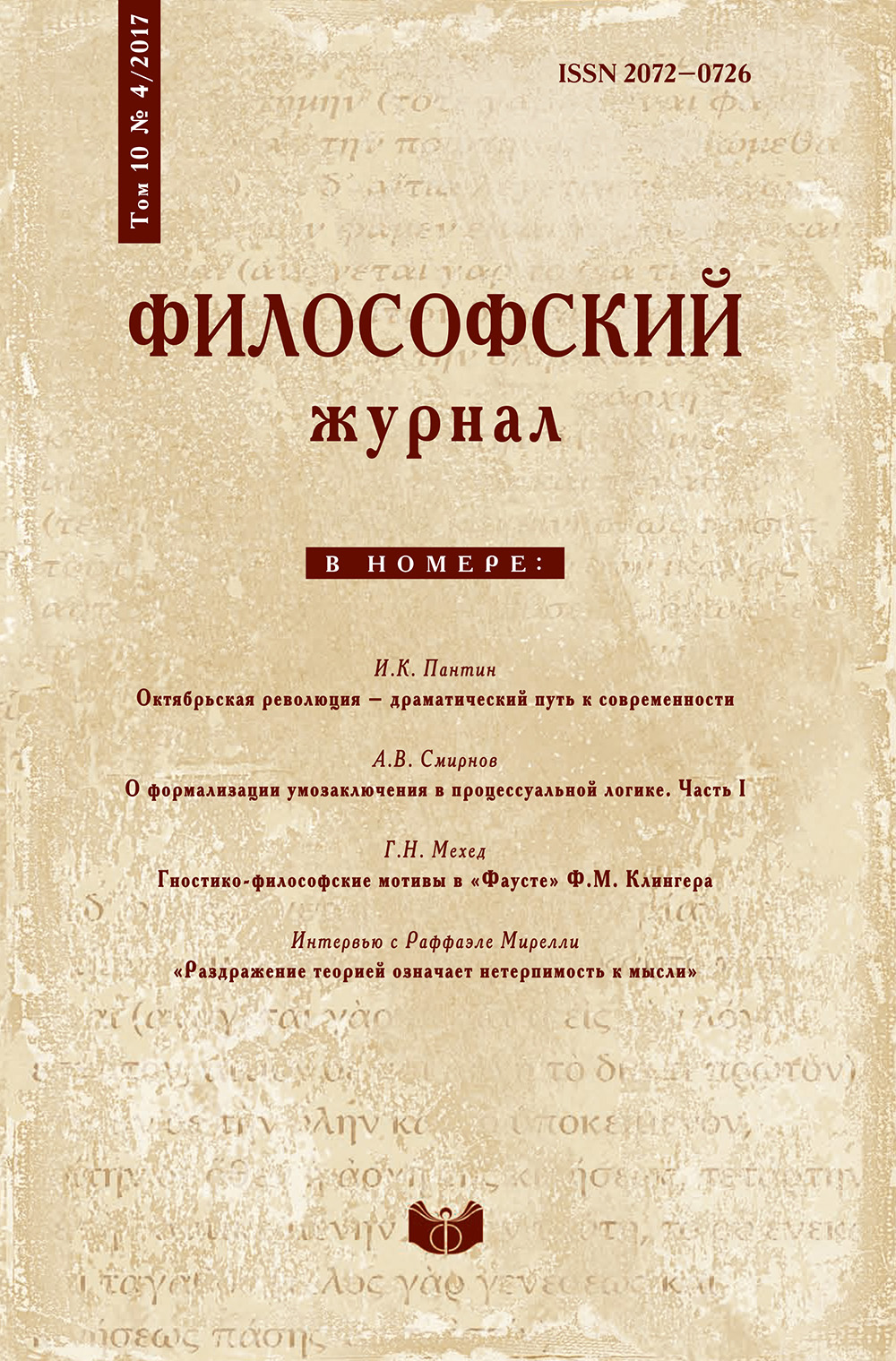Subjectivity and temporality as conditions of the possibility of experience: identification or demarcation?
DOI:
https://doi.org/10.21146/2072-0726-2017-10-4-139-155Keywords:
phenomenology, transcendental philosophy, subjectivity, conscious experience, pre-reflective self-consciousness, temporalization, the quasi-temporal flow of consciousness, inner time-consciousness, passive synthesis, self-affectionAbstract
In this article, the author analyzes the tendency, manifest in transcendental phenomenological philosophy, to identify the concept of subjectivity with that of temporality. The most vital problem within this particular philosophical tradition concerns the conditions of the unity of conscious experience. The classical solution to this problem was that contents of consciousness are brought to unity by virtue of belonging to the same self. David Hume, however, questions its phenomenological validity, for the reason that perceptions are given to us as they are, i.e., as particular existences that come one after another. For Hume, as he admits in the Appendix to his Treatise, it appears impossible from the flux of perceptions alone to justify not only the existence of the self as a fixed self-identical entity and subject of perceptions, but even the existence of the persistent “bundle or collection of different perceptions”. It is this difficulty that prompted Kant to consider the idea that Hume’s method of directly describing the content of consciousness needed to be complemented with the transcendental method. A further important step toward identifying subjectivity with temporality was made by Kant when he advanced his solution of the problem of self-consciousness as a necessary condition of the existence and unity of conscious experience. According to Kant, the difficulty that lies in the question “how can the subject have an internal intuition of itself” is common to every theory, and therefore nothing remains but to abandon the question and recognize that self-consciousness brought about by self-affectation is an essential feature of subjectivity. As a result, the study of subjectivity getssubsequently reduced to the exploration of only those cognitive processes which are conscious, the essential quality of such processes, their temporality, being perceived as'absolute subjectivity' (Husserl). The work of subjectivity is understood as temporalization, and subjectivity itself as time (Heidegger, Sartre). The present author argues that reliance on temporality in the understanding of subjectivity engenders the problem of the formal nature of connections within a conscious experience, which can be solved only by taking into consideration the preconscious level of subjectivity.






